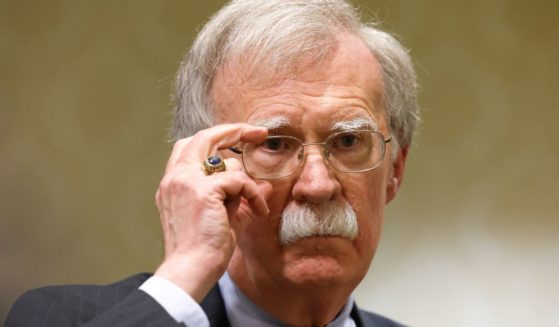
Key Steps In The Formation Of Israel's Next Government

Israeli opposition leader Benjamin Netanyahu is poised to return to the Prime Minister’s office with his religious bloc’s apparent victory in Tuesday’s national elections.
Focus is now beginning to shift to the political process that will culminate with the formation of the Jewish state’s next governing coalition.
According to Israel’s Basic Law: The Knesset, Central Elections Committee chairman Justice Yitzhak Amit must present the final results of the elections to President Isaac Herzog by Nov. 9.
Thereafter, Herzog will have seven days to hold consultations with the leaders of parties elected to the 25th Knesset—a process that will be broadcast live on Israeli television in accordance with the law–before tasking a candidate with forming a coalition based on their recommendations.

The tasked candidate, which will almost certainly be Netanyahu, will then have four weeks, with the possibility of a 14-day extension, to earn the formal support of at least 61 parliamentarians to pass a confidence vote in the 120-seat Knesset.
One of Israel’s most contentious politicians, Mr. Netanyahu, 73, is known to be a fierce competitor. He is disliked by many on the left and centre but revered by Likud’s common supporters. Many dub his quest for power the reason behind Israel’s going into five elections in less than four years.
After the bagging a clear victory after the exit poll, Netanyahu said to his supporters: “We are close to a big victory.”
“We have won a huge vote of confidence from the people of Israel,” he said.
Netanyahu is a staunch supporter of Israel’s settlement-building in the West Bank, which it has been occupying since the Middle East conflict of 1967. International law considers the settlements to be unlawful, while Israel contests this.
He opposes the proposal put out by the majority of the international community, including the Biden administration in the US, to establish a Palestinian state in the West Bank and Gaza Strip as a means of resolving the Israeli-Palestinian problem.
Political scientist Gayil Talshir, from the Hebrew University of Jerusalem, said that if the exit polls “reflect the real results, Israel is on its way to become Orban’s Hungary”.
But Netanyahu’s supporters care more for the security of the Israeli people, and they think the Likud leader is the best to ensure it.
“It will be better now,” said a far-right supporter to a news agency, “When [Religious Zionism politician Itamar Ben-Gvir] will be minister of public security, it will be even better – he’ll bring back security to the people of Israel. That’s very important.”
However, if somehow, Netanyahu is unable to form a coalition within the allotted time frame, Herzog can either task another party head with doing so, or inform the Knesset Speaker that he sees no prospect for the formation of a coalition, in which case parliament would disband, and the country would head to another round of elections within 90 days.

In the former case, the chosen candidate would have just 28 days to receive the formal backing of a majority of legislators – in Israel, a minority government is formed when a ruling coalition comprises fewer than 61 lawmakers but is backed in key votes by members of the opposition.
Should the second candidate also fail to secure the necessary support, a majority of Knesset members could, in turn, submit a joint formal written request to Herzog to task a specific lawmaker with forming a coalition within 21 days.
If no such request is made, or if the third candidate is unable to form a coalition, the legislature will be dissolved and Israelis would head to the polls again, in this case, for the sixth time in just over four years.
However, after five elections in rapid succession beginning in April 2019, the Israeli public has seemingly given Netanyahu a resounding mandate to helm a stable, right-religious coalition.
Already Israel’s longest-serving premier, Netanyahu looks primed to return to the Prime Minister’s Office for an unprecedented third round of leadership, after holding the post from 1996-1999 and 2009-2021.
Some analysts however think that power needs to reside with Netanyahu to avoid another election.
“I don’t know any serious thinker who says Israel is going to another round of elections for reasons other than Netanyahu’s personal interests,” said Talshir in a earlier interview.
Produced in association with Jewish News Syndicate.
(Additional reporting provided by JNS Reporter)
The Western Journal has not reviewed this story prior to publication. Therefore, it may not meet our normal editorial standards. It is provided to our readers as a service from The Western Journal.
Truth and Accuracy
We are committed to truth and accuracy in all of our journalism. Read our editorial standards.
Advertise with The Western Journal and reach millions of highly engaged readers, while supporting our work. Advertise Today.












